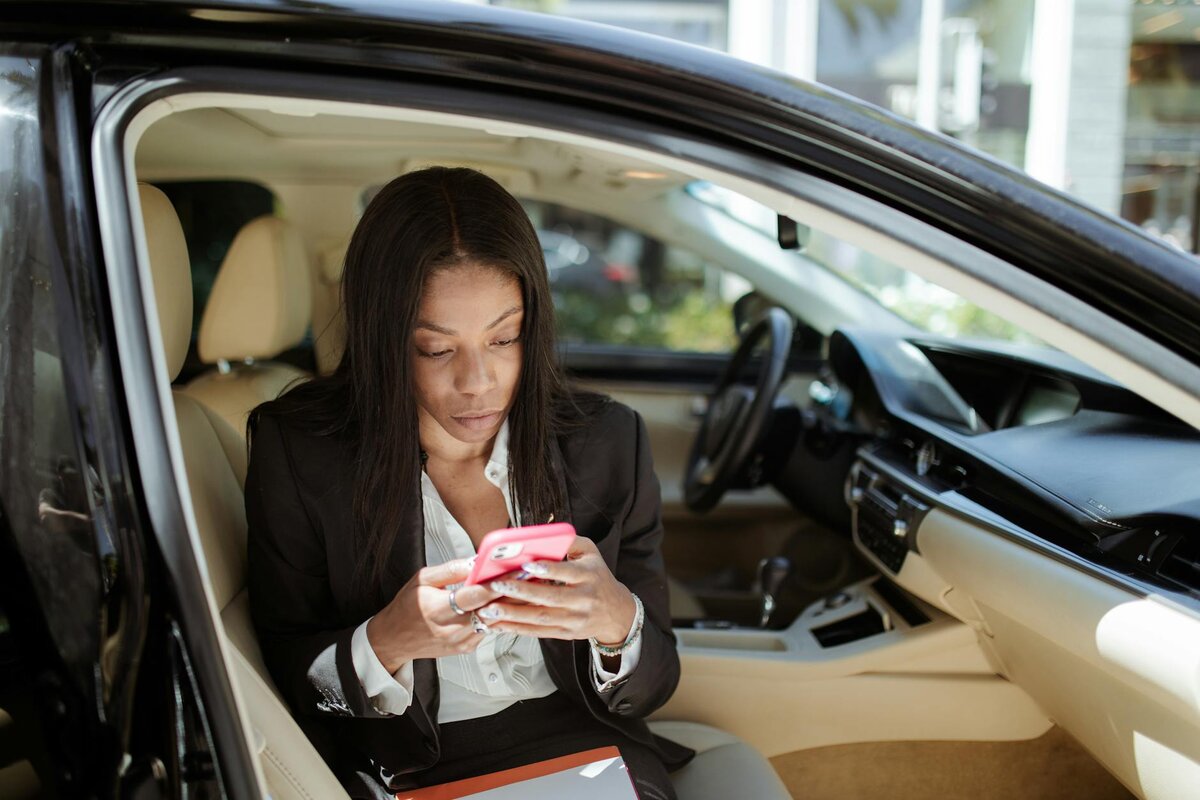Let’s Break This Down Together...
Worried you can’t claim mileage because you don’t have every receipt or a neat little logbook? This is one of the most common worries for UK taxpayers.
This guide walks you through HMRC’s rules on mileage claims, what counts as acceptable evidence, and the simple records you can use instead. We’ll also cover when receipts matter, what a logbook really means, and the alternative proofs you can lean on.
By the end, you’ll know exactly how to claim without stress and keep HMRC on your side. You’ll save money, avoid penalties, and feel confident about your mileage claims, let’s dive in.
What Are Mileage Allowances in the UK?
Before diving into record-keeping requirements, it helps to understand what you can actually claim. HMRC allows business travellers to claim mileage using Approved Mileage Allowance Payments (AMAPs).
Both employees and a self employed person can claim mileage allowances when using their own vehicles for business purposes, provided the travel qualifies as a business expense and the vehicle is used for business purposes rather than commuting.
For cars and vans, you can claim 45p per mile for the first 10,000 business miles in each tax year. After that, the rate drops to 25p per mile. A business mile is each mile driven specifically for business activities, and the business mileage allowance is calculated based on the total business miles driven in the tax year.
The mileage rate is set by HMRC and is used to calculate the self employed mileage allowance for business journeys.
If you’re using a motorcycle, the rate is 24p per mile regardless of total distance. Cyclists can claim 20p per mile for business journeys.
Eligibility and Requirements for Mileage Claims
To qualify for mileage claims, you must use your personal vehicle for genuine business purposes. This includes travel to client meetings, job sites, or other work-related destinations, but does not cover your regular commute between home and your usual workplace. Only journeys that are directly related to your work responsibilities are eligible for mileage allowance relief.
Accurate record-keeping is crucial when claiming mileage allowance. You’ll need to maintain a mileage log that details each business journey, including the date, start and end points, and the reason for the trip. HMRC mileage rates, currently 45p per mile for the first 10,000 business miles in a tax year, and 25p per mile thereafter, are used to calculate your allowable expenses. These rates apply to the use of your personal vehicle for business, ensuring you’re reimbursed fairly for your business miles.

Can You Claim Mileage Without Receipts?
Yes, you can claim mileage without fuel receipts when using the standard mileage rates. HMRC’s AMAP system is specifically designed as a simplified method that doesn’t require every fuel receipt.
If you choose to claim actual vehicle expenses or actual expenses (such as fuel expenses), you will need to keep all relevant receipts and invoices as evidence to support your claim.
What HMRC cares about is evidence that the journeys took place and were genuinely for business purposes. The focus is on journey details rather than proof of individual fuel purchases.
Keeping some fuel receipts can strengthen your claim as supporting evidence. They help demonstrate you were actually using the vehicle during the period you’re claiming for.
Without receipts, you’ll need to put extra effort into maintaining detailed journey records. This becomes your primary evidence for HMRC. Maintaining proper records is essential for successfully claiming tax relief or to claim tax relief on your business mileage.
Is a Mileage Logbook Mandatory?
Contrary to popular belief, HMRC doesn’t specify that you must keep a traditional paper logbook. What they require is “sufficient records” to support your claims.
These records can take many forms - a paper logbook is just one option. Digital alternatives like spreadsheets, smartphone apps, or even calendar entries with mileage notes can be perfectly acceptable. Mileage logs can also be maintained using a mileage tracking app or expense management software, which automate mileage tracking and record-keeping, making it easier to ensure your records are accurate and compliant.
The key requirement is that your records are consistent, contemporaneous, and contain enough detail to verify the business purpose. Records made at or near the time of travel are always more credible.
If you’re claiming significant mileage, more comprehensive records become increasingly important. HMRC scrutiny tends to increase with the size of the claim.
What Information Should You Record?
At minimum, your mileage records should include the date of each journey, with start and end points clearly identified. Postcodes are ideal for precision.
The business purpose of the trip should be noted - client meetings, site visits, collecting supplies, etc. This helps establish the legitimacy of your claim.
Always record the total distance travelled for business purposes on each journey. If you use multiple vehicles, note which one was used for each trip.
Accurately track mileage for every business journey, as this is essential for calculating how much mileage you can claim. To determine your allowable business mileage expenses, you may need to multiply total business miles by the HMRC mileage rate. If you use the actual cost method, you must also keep records of total vehicle expenses, including maintenance costs and other motor expenses.
For regular or repeated journeys, you might be able to establish a pattern with sample evidence rather than recording every single trip identically.

Alternative Evidence HMRC May Accept
If your record-keeping hasn’t been perfect, don’t panic. HMRC may accept alternative evidence to support your mileage claims.
Business diaries or calendar entries that match your claimed journeys can serve as supporting evidence. Emails confirming appointments or meetings at the destinations you’ve claimed are also useful.
GPS data from navigation apps that show your travel patterns can be compelling. Parking receipts or toll charges that place you at claimed business locations add credibility.
If you use a company car or company cars for a business trip, you may need to provide additional evidence of business costs and clarify how mileage payments or reimbursements are handled. Proper documentation is also important for employers who reimburse employees for business travel, as it affects how both parties pay tax on these payments.
What Happens If You're Investigated?
HMRC can open an enquiry into your tax return up to one year after the filing deadline. This period extends if they suspect deliberate errors.
Without adequate records, there’s a risk HMRC may disallow some or all of your mileage claims. This could potentially result in additional tax payments. Disallowed claims can also affect your national insurance contributions, corporation tax (for companies), and eligibility for capital allowances.
If HMRC determines you’ve been negligent in your record-keeping, they might also apply penalties. These are typically calculated as a percentage of the additional tax due.
Being honest about gaps in your records and making reasonable estimates based on available evidence is far better than fabricating details.

Final Thoughts
Claiming mileage without perfect records isn’t impossible, but it certainly increases your risk of HMRC scrutiny. The best approach is to implement a simple recording system now, even if you’ve been lax in the past. Keeping clear records is especially important if your vehicle is used for both business and personal mileage, as only business usage is eligible for claims.
Remember that consistent, contemporaneous recording is far more convincing to HMRC than attempting to reconstruct journeys months later. A basic spreadsheet or dedicated app can make compliance much easier going forward. Self employed individuals must keep detailed records when using their own vehicle for business purposes to ensure compliance.
If you’re claiming substantial mileage, the tax savings usually justify the small effort of maintaining proper records. And if you’re worried about past claims, consider speaking with a tax professional about your specific situation.
Simplifying Mileage Claims Tax
Getting your mileage claims right doesn't need to be a headache with the UK's first personal tax app.
Our real-time tax dashboard shows exactly how your mileage claims affect your tax bill. You can see the savings immediately as you log journeys.
When it's time to file, our direct HMRC integration ensures your mileage claims are submitted correctly. This minimises the risk of enquiries and gives you peace of mind.
Curious how it works? Take a look at the Pie app to see how we've made tax simple.











